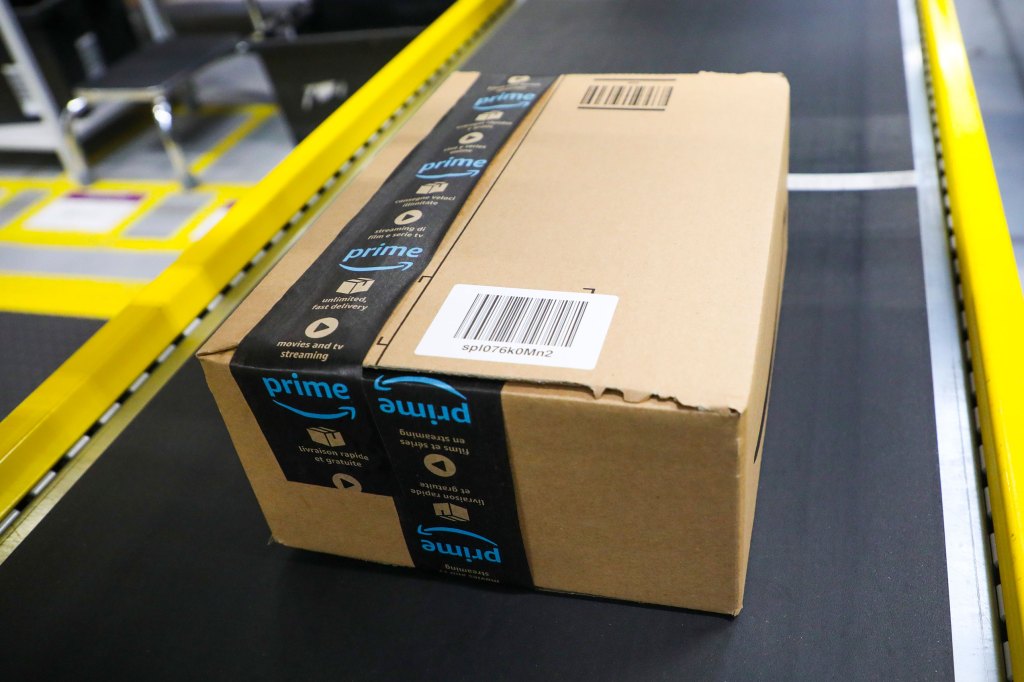In its latest step targeting a major marketplace, the European Commission sent Amazon another request for information (RFI) Friday in relation to its compliance under the bloc’s rulebook for digital services.
The development highlights areas where EU enforcers are dialing up their scrutiny of the e-commerce giant, with the bloc asking for more info about Amazon’s recommender systems, ads transparency provisions and risk assessment measures.
An earlier Commission RFI to Amazon, last November, focused on risk assessments and mitigations around the dissemination of illegal products; and the protection of fundamental rights, including in relation to its recommender systems. A Commission spokesperson confirmed the e-commerce giant has received three RFIs in all — following a January ask for more info on how it’s providing data access for researchers.
The EU’s Digital Services Act (DSA) puts requirements on platforms and services to abide by a series of governance standards, including in areas like content moderation. In the case of online marketplaces the law also requires they implement measures to enable them to take action to tackle risks around the sale of illegal goods. Larger marketplaces, such as Amazon, have an additional layer of algorithmic transparency and accountability obligations under the regime — and this is where the Commission RFIs are focused.
The additional rules have applied on Amazon since the end of August last year, following its designation by the EU as a very large online platform (VLOP) in April 2023. It’s the Commission’s job to enforce these extra obligations on VLOPs.
While it remains to be seen if the latest Commission RFI to Amazon will lead to a formal investigation of its DSA compliance the stakes remain high for the e-commerce giant. Any confirmed violations could get very costly as penalties for breaching the pan-EU law can reach up to 6% of global annual turnover. (NB: The company’s full-year revenue for 2023 was $574.8 billion, meaning — on paper at least — its regulatory risk runs into double-figure billions.)
Detailing its action in a press release, the Commission said it has sent Amazon an RFI related to measures it has taken to comply with DSA rules related to the transparency of recommender systems and their parameters. It also said it’s asking for more info about Amazon’s provisions for maintaining an ad repository — another legally mandated transparency step for larger platforms.
The Commission also said it wants more detail about Amazon’s risk assessment report. The DSA requires VLOPs to both proactively assess systemic risks that might arise on their platforms and take steps to mitigate issues. Platforms also need to document their compliance process.
“In particular, Amazon is asked to provide detailed information on its compliance with the provisions concerning transparency of the recommender systems, the input factors, features, signals, information and metadata applied for such systems and options offered to users to opt out of being profiled for the recommender systems,” the EU wrote. “The company also has to provide more information on the design, development, deployment, testing and maintenance of the online interface of Amazon Store’s Ad Library and supporting documents regarding its risk assessment report.”
The EU has given Amazon until July 26 to provide the requested info. After that, any next steps will depend on its assessment of its response. But failure to respond satisfactorily to an RFI could itself trigger a sanction.
Last year the EU named online marketplaces as one of a handful of priority issues for its enforcement of the DSA’s rules for VLOPs. And it has looked attentive to the area.
Late last month it sent separate RFIs to rival marketplace VLOPs, Shein and Temu — soon after designating the pair. Although, in their case, the Commission’s RFIs also raised concern about illegal goods risks and manipulative design (including as a potential child safety risk), as well as asking them for more information about the operation of their own recommender systems.
Why so much interest here? Algorithmic sorting has the power to influence platform users’ whole experience by determining the content and/or products they see.
In a nutshell, the EU wants the DSA to crack open such blackbox AI systems to ensure that platforms’ commercial agendas — to grab users’ attention and/or drive more sales — aren’t the only thing programming these automated decisions. It therefore wants the DSA to act as a shield against the risks of AI-driven societal harms, such as platforms pushing content that’s harmful for people’s mental health or recommending shoppers buy dangerous products. But achieving that goal will require enforcement.
Amazon, meanwhile, is unhappy about the EU regime. Last year it challenged its DSA designation as a VLOP. And last fall it won an interim stay on one element of VLOPs’ DSA compliance — namely the requirement to publish an ads library. However, in March, the EU General Court reversed the earlier decision, overturning the partial suspension.
“Following its designation as a Very Large Online Platform and the Court’s decision to reject Amazon’s request to suspend the obligation to make its advertisement repository publicly available, Amazon is required to comply with the full set of DSA obligations,” the Commission wrote today. “This includes diligently identifying and assessing all systemic risks relevant to its service, providing an option in their recommender systems that is not based on user profiling, and have an advertisement repository publicly available.”
Given Amazon has spent money on lawyers to try to argue why it shouldn’t have to comply with the DSA ads library element — and the subsequent overturning of the stay — it’s not too surprising this is one of the areas where the Commission is seeking more information now.
The EU was contacted with questions. A Commission spokesperson confirmed the first RFI to Amazon, from November 2023, had “a strong focus on the dissemination of illegal products and the protection of fundamental rights online”, as well as asking questions about its recommender systems.
A second RFI, in January 2024, focused on measures Amazon has taken to comply with data access for eligible researchers, per the spokesperson. They said the latest RFI is strongly focused on measures taken to meet DSA obligations related to the transparency of recommender systems and their parameters, as well as to the provisions on maintaining an ad repository.
“These are actually different areas we are looking into,” the spokesperson added. “You are however right to say that today’s RFI also follows the Court’s decision to reject Amazon’s request to suspend the obligation to make its advertisement repository publicly available.”
We also reached out to Amazon for a response to the Commission’s RFI.
A company spokesperson emailed TechCrunch this statement: “We are reviewing this request and working closely with the European Commission. Amazon shares the goal of the European Commission to create a safe, predictable and trusted shopping environment. We think this is important for all participants in the retail industry, and we invest significantly in protecting our store from bad actors, illegal content, and in creating a trustworthy shopping experience. We have built on this strong foundation for DSA compliance.”
This report was updated with responses from the Commission































Comment